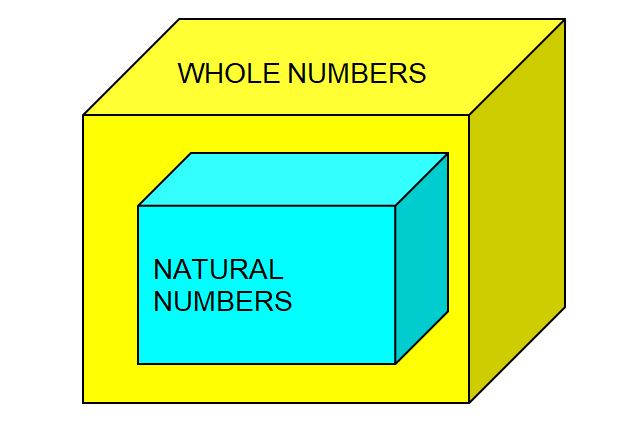Numbers may be found all throughout the globe, used for counting things, representing or trading money, measuring temperature, telling time, and so on.
Almost everything involves numbers, whether it's soccer scores, culinary recipes, counting on items, and so on. Discovering a whole number took place when zero was considered as a part of it.
A quick glimpse at different types of number systems:
A collection of numbers that includes all positive integers and 0 is known as a whole number.
Whole numbers are fractions, decimals, and negative values that are not included in real numbers.

Whole numbers include counting numerals as well. The number system in mathematics is made up of different kinds of numbers. These are natural numbers, whole numbers, prime numbers, integers, real numbers, so on. Different types of numbers are used to conduct various computations.
What do you mean when you say "whole numbers"?
Positive integers, starting from number 1, are known as natural numbers. On the other hand, whole numbers include natural numbers and zero (0). Zero, on the other hand, is a non-defined identity that denotes a null set or no outcome.
Definition:
Whole numbers are a collection of numbers that include no fractional number or decimal number, or even negative integers. It consists of a set of positive integers and zeros.
Is it true that natural numbers are all whole numbers? Are the numbers you're counting whole?
The most significant distinction between natural and whole numbers is zero.
The set of natural numbers plus the number 0 is known as whole numbers. In mathematics, the set 0 to 1,2,3,... is known as the whole number set. The letter W stands for a group of whole numbers.
W = 0, 1, 2, 3, 4,...
Some interesting facts on whole numbers:
Here are some interesting facts about whole numbers that may help you better comprehend them:
Whole numbers are all natural numbers.
Every number in the counting system is a whole number.
Whole numbers include all positive integers, including zero.
Real numbers are all entire numbers.
Difference Between Natural and Whole Number:
all whole numbers except 0 are natural numbers. Furthermore, all whole numbers are natural numbers. As a result, the set of natural numbers is a subset or portion of the set of whole numbers. In mathematics, natural numbers can be grouped within the Whole numbers. Simply put, Natural numbers are subset or part of the Whole numbers.
For example:
Natural Numbers = {1,2,3,4,5,6,7….}
Whole Numbers = {0,1,2,3,4,5,6,7….}
Let us use the following table to understand whole numbers versus natural numbers:
| Whole Number | Natural Number |
| The Whole set of numbers can be represented in the following manner: W={0,1,2,3,...} | The Natural set of numbers can be represented in the following manner: N= {1,2,3,...} |
| In the Whole number range, 0 is the smallest. | In the Natural number range, 0 is the smallest. |
| A whole number can be expressed as any natural number. | Natural numbers are all whole numbers, except 0. |
All-in-one e-learning platform for explanation on all math topics:
Students can get a deep insight about the whole numbers and other topics associated with it by checking our e-learning platform.The learners get to watch a variety of video lectures, and 2-D and 3-D animations and simulations. It also includes comprehensive written material, PPTs, assignments, and supporting illustrated pictures linked to a topic.
The best aspect of the e-learning platform is that students can buy and watch a specific content on topic of a subject. They don’t have to pay for and purchase the whole course only to grasp one or two ideas. We offer learning material on our platform as well as from our learning partners. You are the master! Choose any topic of your choice at your budget from us or any of out learning partners.

